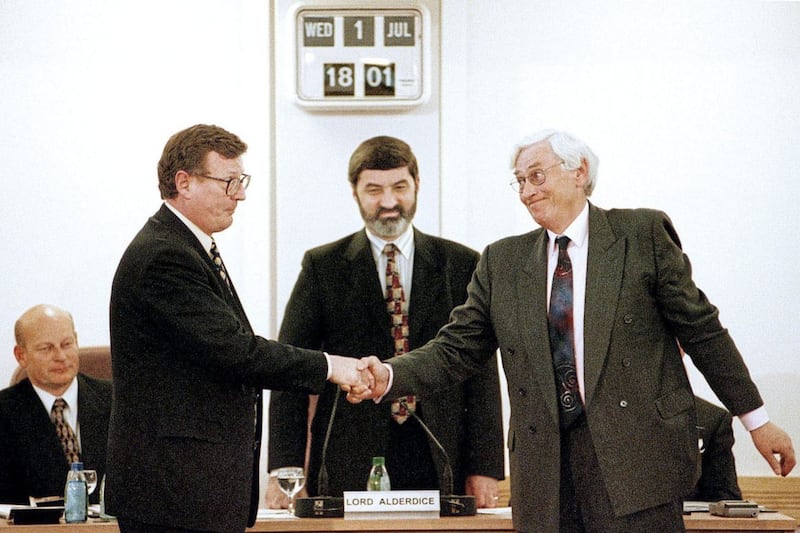IRISH army chiefs feared the British and nationalists would call for Irish troops to be sent over the border in response to near civil war in Northern Ireland.
While the idea would never have got past the cabinet table, a secret aide memoire compiled for ministers on November 7 1985 - the week before the Anglo Irish Agreement was signed - warned of the scenarios.
In documents released from the Taoiseach's office under the 30-year rule, advisers said the more likely reaction to the agreement would be harsh and confrontational.
They contemplated anything up to "intercommunal fighting".
But the idea of a cross-border mission was rejected by defence chiefs because they said the army's size and equipment was "hopelessly inadequate".
They also thought an assignment into the north would not have a clear military objective while Irish soldiers could only serve overseas with the United Nations.
The memoire warned: "Depending on its scale and intensity could lead to pressure for intervention by the Defence Forces either by request from beleaguered nationalist communities or by request from the British government if it thought its forces were unable to cope or if it wished to involve the Republic for political reasons (prelude to withdrawal or share the responsibility for what would by then be seen as a failed initiative).
"Depending on the scale of the fighting there could also be political pressure in the Republic for intervention on the basis of 'we cannot stand idly by'".
The defence minister at the time, Paddy Cooney, had got the advice after summoning the Council of Defence - made up of the chief of staff, adjutant general, quarter-master general, a junior minister and his department secretary - on August 28 1985.
He rejected any possibility of Irish soldiers going north without a reform of the law.
"It is valid to guess that the opposition will be mild, developing into a grudging acceptance of, or at least acquiescence to, the new regime," the notes stated.
"It is equally valid and arguably more realistic to guess that the opposition will be harsh and confrontational."
This ranged from peaceful protest to civil disobedience, industrial action, marches which would need policing, riots and inter-communal fighting, advisers said.
Despite 500 new army recruits, the government was warned they would be needed in the Republic.
"In the event of the contingencies averted to... coming to pass there will be a demand for extra duties in the Republic in anticipation of hostile unionist action. In fact this has already happened," the advice stated.
Mr Cooney said deployment to Northern Ireland would "carry with it the near certainty of fatal casualties".
And he also warned that reforming laws governing the Defence Forces to let them operate in the north would "certainly raise apprehensions" on both sides of the border.
Mr Cooney's advice to the government also hit out at Fianna Fail: "It is sadly ironical, that the agreement designed to advance peace in NI should now, following the hostile reaction by Mr CJ Haughey, find itself commanding only minority support on the island."







